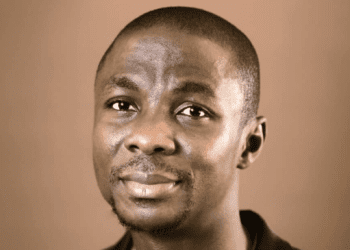Serwaa Broni stood at the exact spot where Belinda was killed by a stray bullet at Jackson Square in Hamilton, Ontario, as Aura Rosa, a reporter from the Canadian Broadcasting Corporation (CBC), took a few shots for her story.
Shots for her photograph, I mean.
On a good day, Jackson Square sees many of these shots of tourists, students, coffee sellers, bus riders, and visitors just wandering about town.
The shot from a gun, like the one delivered by a 17-year-old boy that took the life of Belinda Sarkodie, a new immigrant in Canada, was not just an aberration, but a spear in the heart of Ghana, where Belinda had flown from only a year ago.
The Canadian promise
Belinda called Serwaa Broni auntie. Well, an aunt in the Ghanaian-Canadian sense, where good-hearted individuals who are fairly established in a host country, play in loco parentis or at least, support new immigrants to settle in.
And if you were wondering who Serwaa Broni is, she is the same person who was alleged to have accessed the inner circles of political power for some undefinable reasons.
Here in Toronto, what defines Serwaa Broni (proper name Evelyn Aidoo) is something far more valuable and meaningful than a presidential photo op.
She is a silent moral entrepreneur who goes about town dishing out humanitarian support to Ghanaians in need or in crisis, including women going through emotional problems.
Serwaa has lived in Canada for 30 years and knows the struggles of new immigrants and the indecisions of naturalised Canadians of Ghanaian origin.
When she stood at the intersection of James Street North and King Street West, the exact spot Belinda was hit, to pose for the CBC photo, Serwaa became a veritable portrait of the enigmas and dilemmas that confound many Ghanaians in Canada.
Belinda had barely settled into her new surroundings in Hamilton. Here, the options are innumerable but the strategy is one.
Belinda had not found the rhythm to negotiate a good balance between the tripod of regularising her immigration status, identifying a clear career path, and meeting expectations in Ghana.
A new immigrant needs a bit of coaching to navigate the Canadian Promise, a strange place where an electrician earns more than a professor, and a hairdresser buys a house and drives a ‘tear-rubber’ Lexus.
Unlike America, where immigrants ruthlessly chase or cut to the chase to find their Dream, Canada dangles a tantalising promise in your sights and sets up a roadmap you must follow willy-nilly.
Unwritten rule
As a new immigrant in Canada, part of Belinda’s new learnings would include knowing the unwritten rule: Give yourself time to succeed and don’t cheat the roadmap to success.
Like many new immigrants, Belinda must have been advised to go to school or think about going to school.
There is no middle ground, and when you do find one, those grounds would cave in. Young African women of Belinda’s age are often encouraged to go into nursing or other health-related disciplines, starting with PSW (Personal Support Worker), a program that has been dignified with the bona fides of a health promotion strategist.
On the job, however, a PSW is expected to function like the generalissimo of the human body, lifting heavy human weight, caring, cleaning, wiping and singing lullabies. It is a good place to start.
There are no guarantees for clinching any of the many advertised jobs after getting a degree or diploma from a college.
It is not an uncommon sacrilege to find brilliant minds with good Master’s degrees or even PhDs delivering pizzas or driving a taxi in Toronto.
These are mostly foreign-educated professionals who may have tried to cheat the roadmap by not doing what the Canadian immigration rule book says.
The Canadian job market only understands the language of a degree earned from Canada.
If you immigrated with a dozen degrees, seek a Canadian qualification as validation. The big foreign qualifications only get noticed when they are introduced by a first aid certificate from the Canadian Red Cross, or a workshop in baking.
Sleeping in churches
Thankfully, Belinda, a graduate from the University of Cape Coast, had found work in the ground handling area of the Hamilton Airport to pay the bills.
The reports say she was hardworking and was favoured by her supervisors.
The job reality in Canada is frightening, especially for many Ghanaians who immigrated to Canada with Belinda last year.
Many immigrants scraped through the year jobless, sleeping rough at strange places and scavenging on handouts.
When it became very threatening, big numbers of fresh immigrants and young students thronged churches in Toronto, not to worship God but to sleep on pews, with pianos and drums as roommates. Some of them gave up the Promise and flew back to Ghana.
The next axis in the immigration tripod that Belinda would have dealt with was the ‘nkrataa’ metaphysics.
Suddenly, what used to be an organic transition from the student residence to permanent residency after the school is now presented by Canadian immigration as sickness and the cure knitted behind the bile. Refugee claimants have nothing much to claim these days, because the process seems to have been set against the stories claimants present. Previously, Canada had a silent policy: “once you are in, you stay in” Now, “don’t come in if you are minded”.
Belinda didn’t enjoy any of the graces and charities Canadian immigration offers. She thought she would be safe in Canada, but Canada gave her a mass requiem. Tributes continue to pour in to celebrate a brilliant young lady whose only crime was to have left her house to buy food. Ghanaians in Hamilton and the Greater Toronto Area are asking: Who gets shot in Ghana while waiting for a bus?
bigfrontiers@gmail.com
Tissues Of The Issues
Ottawa, Canada














